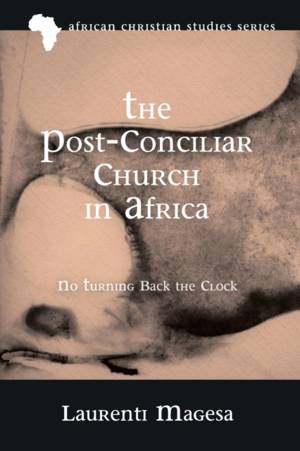
- Retrait gratuit dans votre magasin Club
- 7.000.000 titres dans notre catalogue
- Payer en toute sécurité
- Toujours un magasin près de chez vous
- Retrait gratuit dans votre magasin Club
- 7.000.0000 titres dans notre catalogue
- Payer en toute sécurité
- Toujours un magasin près de chez vous
35,45 €
+ 70 points
Format
Description
The Second Vatican Council (Vatican II, 1962-65) was distinctly different from other councils in one significant aspect. In all the areas it discussed, this council did not see itself as the end of a process, but rather as a beginning. It opened, not closed, doors--whether doctrinal or disciplinary--for ongoing reflection, for possibilities of ever-improving knowledge and understanding. Laurenti Magesa offers this book as a stimulus for African (Catholic) Christians to continue digging deeper into and benefiting from the spiritual treasures that the Council still contains. For the theologian or historian of Vatican II, some of the information may be quite familiar, but all of it is important if one is to grasp the scope, meaning, and implications of the Council for the Church and people of Africa.
Spécifications
Parties prenantes
- Auteur(s) :
- Editeur:
Contenu
- Nombre de pages :
- 174
- Langue:
- Anglais
- Collection :
- Tome:
- n° 16
Caractéristiques
- EAN:
- 9781532609121
- Date de parution :
- 04-06-18
- Format:
- Livre broché
- Format numérique:
- Trade paperback (VS)
- Dimensions :
- 152 mm x 229 mm
- Poids :
- 258 g

Les avis
Nous publions uniquement les avis qui respectent les conditions requises. Consultez nos conditions pour les avis.






